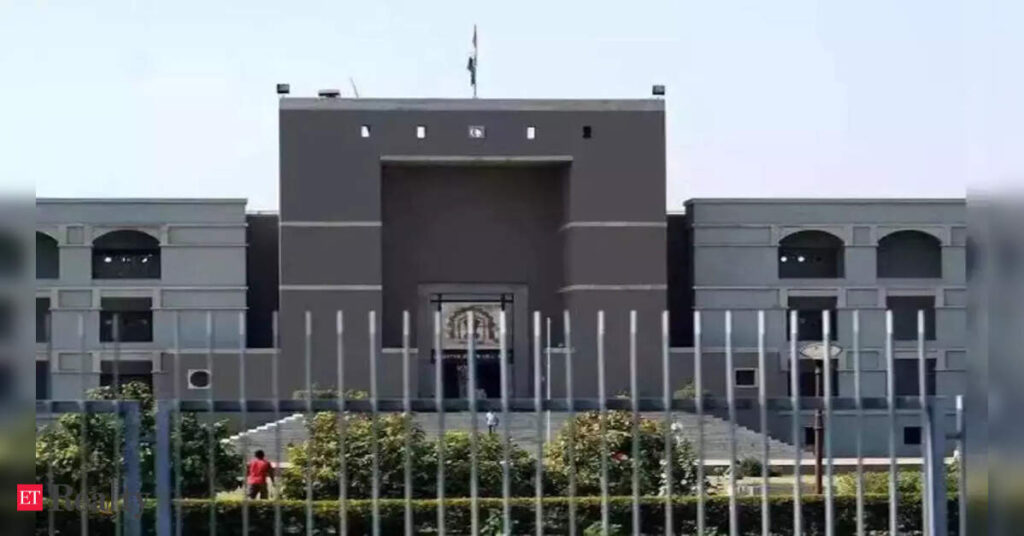Executing a sale deed in Delhi is the final and most critical step in any property transaction within the nation’s capital. This legal document serves as the official evidence of the transfer of property ownership from a seller to a buyer. To make this transfer legally valid and to secure the buyer’s rights against any future claims, every sale deed must be registered with the jurisdictional Sub-Registrar’s office. This registration process ensures the transaction is recorded in public records.
What are the Stamp Duty and Registration Charges in Delhi (2025)?
When registering a property, the buyer is required to pay specific government fees. The primary sale deed registration charges in Delhi consist of stamp duty and a registration fee, which are calculated based on the property’s market value or circle rate.
The stamp duty sale deed Delhi rates are unique as they vary based on the owner’s gender and the property’s location within different administrative zones like NDMC and Delhi Cantonment.
Unbeatable Price 5-Star Rated Partner! 2200+ Shades! Top Quality Paint Free Cancellation!

Get a rental agreement with doorstep delivery

Find the BEST deals and get unbelievable DISCOUNTS directly from builders!

5-Star rated painters, premium paints and services at the BEST PRICES!
| Area in Delhi | Ownership Type | Stamp Duty Rate | Registration Charge | Total Cost |
| Areas under Municipal Corporations (Other than NDMC/DCB) | Male | 6% | 1% | 7% |
| Female | 4% | 1% | 5% | |
| Joint (Male + Female) | 5% | 1% | 6% | |
| New Delhi Municipal Council (NDMC) Area | Male | 5.50% | 1% | 6.50% |
| Female | 3.50% | 1% | 4.50% | |
| Joint (Male + Female) | 4.50% | 1% | 5.50% | |
| Delhi Cantonment Board (DCB) Area | Male / Female / Joint | 3% | 1% | 4% |
Note: The registration charge is a standard 1% of the property value across all categories. For a detailed understanding, you can refer to our guide on stamp duty and property registration charges in Delhi.
Essential Clauses in a Sale Deed (Delhi)
A meticulously drafted sale deed format for Delhi must include several crucial clauses to be legally sound. These clauses protect the interests of both the buyer and the seller and leave no room for ambiguity regarding the property transfer.
- Details of the Parties: Full names, addresses, ages, and the father’s names of the seller (Vendor) and the buyer (Vendee).
- Property Description: A complete and accurate description of the property, including its full address, plot number, floor, and dimensions.
- Sale Consideration: The final agreed-upon price of the property, which must be clearly stated in both figures and words.
- Payment Method: Details of how the sale consideration was paid (e.g., cheque, bank transfer) and acknowledgement of its receipt by the seller.
- Transfer of Title: A clear statement from the seller transferring all their rights, title, and interest in the property to the buyer absolutely and forever.
- Indemnity Clause: The seller’s assurance to compensate the buyer for any future losses that may arise due to defects in the property’s title.
- Encumbrance Status: A declaration by the seller confirming that the property is free from any loans, mortgages, legal disputes, or other claims.
- Possession Clause: A clause specifying the exact date on which the physical and vacant possession of the property is handed over to the buyer.
- Witness Details: The names, addresses, and signatures of at least two witnesses who were present during the execution of the deed.
What are the Documents Required for a Sale Deed in Delhi?
The table below lists the essential documents needed for the registration process and their purpose.
- Chain of Title Documents: Shows the complete ownership history through previous registered sale deeds.
- No Objection Certificate (NOC): Needed if the property is leasehold; issued by authorities like DDA or L&DO.
- Identity Proof of Parties: Aadhaar Card, PAN Card, or Passport of the buyer, seller, and witnesses.
- Address Proof of Parties: Aadhaar Card or latest utility bills (electricity, water, etc.) of all involved parties.
- PAN Card and Form 60: Mandatory for all property transactions; Form 60 is used if PAN is not available.
- Photographs: Two recent passport-sized photos of buyer, seller, and witnesses.
- e-Stamp Paper: Stamp paper of appropriate value printed digitally for payment of stamp duty.
- e-Registration Fee Receipt: Proof of online payment of the 1% registration fee.
- Appointment Slip: Confirmation of your booked slot at the Sub-Registrar Office for final registration.
Sale Deed Registration Process in Delhi
The registration of a sale deed is a formal process that gives legal validity to the property transfer. Following these steps is essential for a legally sound transaction in Delhi.
- Step 1: Drafting the Deed: The first step is to hire a lawyer to draft the sale deed. A proper sale deed format must be used, ensuring it complies with all local laws.
- Step 2: e-Stamping: In Delhi, stamp duty must be paid via e-stamping. This is done through the Stock Holding Corporation of India Limited (SHCIL) portal or its authorised collection centres.
- Step 3: Payment of Registration Fee: Pay the 1% registration fee online through the DORIS (Delhi Online Registration Information System) portal.
- Step 4: Book an Appointment: After paying the fees, book an online appointment for registration of the sale deed in Delhi through the DORIS portal.
- Step 5: Visit the Sub-Registrar’s Office (SRO): The buyer, seller, and two witnesses must visit the SRO on the scheduled date and time with all original documents.
- Step 6: Document Submission: Present the sale deed printed on the e-stamp paper and all supporting documents to the Sub-Registrar.
- Step 7: Biometric Verification: The photographs and fingerprints of all parties will be captured and verified.
- Step 8: Final Registration: The Sub-Registrar will verify all documents and witness the signing. Once satisfied, the deed is officially registered.
How to Register a Sale Deed Online in Delhi?
The Delhi Government has digitised the property registration process. Most new registrations are now conducted via the National Generic Document Registration System (NGDRS) portal, which operates alongside the e-stamping website.
Here is the updated step-by-step guide:
Step 1: Draft the Sale Deed
Involve a legal expert to prepare a valid, legally compliant sale deed.
Step 2: Pay Stamp Duty & Registration Fee Online
- Calculate stamp duty on the Delhi Revenue or NGDRS portal.
- Generate and pay via e-Stamp on SHCIL website.
- Pay 1% registration fee on NGDRS Delhi portal.
Step 3: Fill Details & Book Appointment on NGDRS
- Log in to NGDRS portal.
- Enter property, party, and stamp paper details.
- Upload documents and schedule Sub-Registrar appointment.
Step 4: Visit Sub-Registrar Office (SRO)
- Buyer, seller, and two witnesses must visit in person.
- Submit original documents, ID/address proofs, photos, tax receipts.
- Biometric verification (photo & fingerprint) is done.
Step 5: Final Registration
- Sub-Registrar verifies everything and registers the deed.
- Receive receipt; collect certified copy of registered deed later.
How to Download a Sale Deed in Delhi?
If you need a copy of your registered deed, you can easily download the sale deed online in Delhi. The DORIS portal provides a facility to get a certified copy.
- Step 1: Visit the DORIS Portal: Head to the Delhi Online Registration Information System (DORIS) portal. Alternatively, platforms like eSahayak and Landeed also provide simplified access to property documents, including sale deeds, depending on availability.
- Step 2: Register or Log In: New users must create an account by providing essential details like name, mobile number, and email ID. Existing users can log in directly using their registered credentials.
- Step 3: Search for the Sale Deed: Navigate to the section for “Property Documents” or “Certified Copies.” You’ll be required to fill in specific document details, such as Registration Number, Book Number, Volume Number, Page Number, Date of Registration, Property Locality, and Sub-Registrar Office (SRO). Some third-party services like Landeed may allow searches using the owner’s name or fewer details for quicker results.
- Step 4: Download the Sale Deed: Once the correct document is located, pay the applicable fee for downloading the certified copy (if required). After the payment is processed successfully, you can download and save the digitally signed sale deed for your records.
Sale Deed Format in Delhi
A standard sale deed format in English is used for property transactions in Delhi. It is structured to contain all the essential information for a valid transfer. The typical structure includes:
- Title of the Deed: Clearly stating “DEED OF SALE”.
- Date and Place: The date and location where the deed is executed.
- Party Details: Section identifying the Vendor (Seller) and Vendee (Buyer).
- Recitals (Preamble): The background story of the property, explaining how the seller acquired it.
- Operative Clauses: The core of the deed, which includes the sale consideration, payment details, and the actual words that transfer the property.
- Schedule of Property: A separate schedule at the end of the document provides a full and detailed description of the property being sold.
- Covenants and Declarations: All the essential clauses like Indemnity, Encumbrance, etc.
- Signature Section: Designated spaces for the signatures of the seller, buyer, and the two witnesses.
Timeline for Sale Deed Registration in Delhi
Sale deed registration in Delhi is now a streamlined online-offline process. With all documents ready, the entire process typically takes 2 to 5 working days to complete.
| Step | Process | Estimated Time |
|---|---|---|
| 1. Agreement & Document Preparation | Draft sale deed, collect documents (NOC, EC, ID proofs, photos, etc.) | 2–4 days |
| 2. Pay Stamp Duty & Registration Fees | Payment via online portals or Sub-Registrar office | 1 day |
| 3. Book Appointment at Sub-Registrar Office | Schedule appointment through Delhi e-Registration portal | Same day to 1 day |
| 4. Visit Sub-Registrar Office for Registration | Buyer, seller, and witnesses present original documents, biometric verification, and sign deed | 1 working day |
| 5. Document Scanning & Upload | Registrar scans documents and updates records | 1–2 days |
| 6. Final Registered Sale Deed Issued | Digital/physical copy provided to buyer | 3–5 working days |
Know More About Sale Deed In Various States of India
How NoBroker Can Help With Legal Services?
The process of drafting and registering a sale deed in Delhi, with its specific rules for different zones and mandatory e-stamping, can be complex. NoBroker’s legal services team is here to provide expert guidance. Our experienced lawyers can help you draft a flawless sale deed, verify property documents, and ensure all legal compliances are met. We manage the paperwork and guide you through the entire registration process, making your property transaction in Delhi secure, transparent, and hassle-free.
Frequently Asked Questions
Ans: The total charges include stamp duty (ranging from 3% to 6%) and a flat 1% registration fee. The final percentage depends on the property’s location and the owner’s gender.
Ans: Yes, in Delhi, it is mandatory to pay stamp duty only through the e-stamping method, which is facilitated by the Stock Holding Corporation of India Limited (SHCIL).
Ans: You can book an appointment at the Sub-Registrar’s Office online through the Delhi government’s DORIS (Delhi Online Registration Information System) portal after paying the necessary fees.
Ans: You can apply for a certified copy online through the DORIS portal by using the “Search/View Registered Document” feature, providing the document details, and paying a small fee.
Ans: A sales agreement is an initial contract that outlines the terms of a future sale. A sale deed is the final, registered document that legally transfers the ownership of the property.
Loved what you read? Share it with others!
 Jessica,Author
Jessica,Author
Jessica loves to read about everything and is currently deeply interested in real estate. She has 5 years of intense research experience and can bring before you well-informed articles. Jessica enjoys writing and this is seen in her work.
Source link




